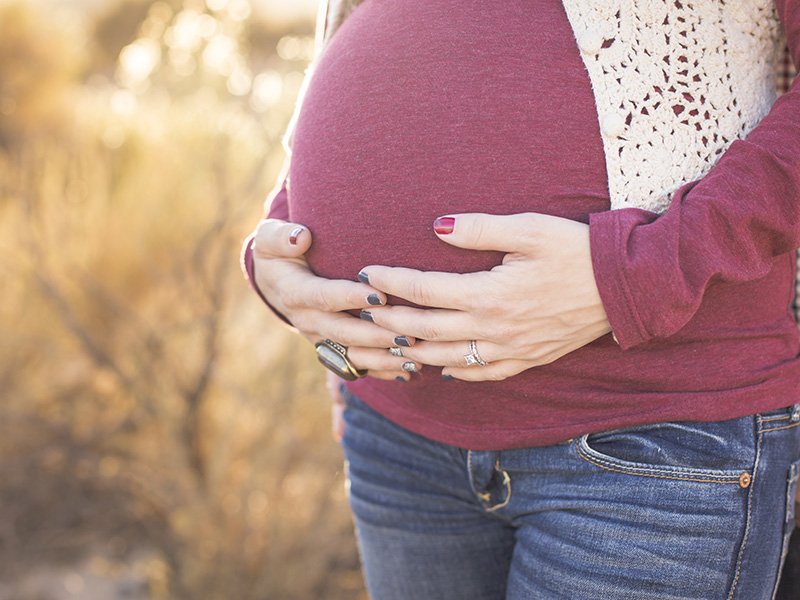
The day you have anxiously awaited has finally arrived: the birth of your baby. Throughout your pregnancy, you took such great care of yourself—healthy eating, avoiding alcohol and other drugs, getting enough rest. Now you can’t wait to pack away those maternity clothes and get back into your skinny jeans.
And you will—just not right away. Your body has been through something miraculous, but also quite draining. Give it time to recover before worrying about weight loss. Now is the time to replenish yourself and build strength—whether that’s for breastfeeding, future pregnancies or just to have enough energy to keep up with your growing baby, not to mention those sleepless nights ahead.
Don’t Focus on the Scale
For many women, it can take up to six months—or even a year—to get back to their pre-pregnancy weights, and that is perfectly fine. If new moms focus on healthy eating and getting regular exercise, the weight will come off in due time and they will feel better, both emotionally and physically.
Most women lose 10 to 12 pounds during delivery, a combination of the baby, placenta and fluid. After that, women can expect to lose 1 pound to 1.5 pounds per week. If you were overweight before getting pregnant, or gained more than 35 pounds during pregnancy, you might need more time to get back to a healthy weight. One year after giving birth, the average woman still retains 2 to 5 pounds, and about 25 percent of women will weigh at least 10 pounds more than they did before pregnancy. This is a concerning statistic, as this excess weight has been associated with increased risks in future pregnancies, as well as long-term health issues.
According to the American College of Obstetricians and Gynecologists, women who are obese at the start of pregnancy—defined as having a body mass index of 30 or above—or who have not lost most of their pregnancy weight face increased health risks, including gestational diabetes and high blood pressure. So it’s important to stick to a well-balanced diet and work toward returning to a healthy weight before your next pregnancy.
Helping Your Cause
Especially in the first few months after childbirth, when it can be common to feel overwhelmed or isolated, the benefits of exercise cannot be overstated. Finding time to work out—even if it’s just a walk with your partner or a friend—will go a long way toward improving your mood as well as your waistline. You should always check with your doctor before starting an exercise program, but generally it’s safe for most women to resume normal activity six to eight weeks after delivery.
Breastfeeding helps the weight come off a little faster, and of course, it’s healthy for your baby. Nursing moms burn an extra 500 calories a day, which adds up to about a pound a week. Keep in mind that losing weight too quickly can cause a decrease in milk supply and slow your childbirth recovery–so no crash dieting. Think slow and steady.
So what does a balanced diet look like for new moms? Certainly, you want to make sure you’re getting enough protein and healthy fats, as well as calcium, vitamin D and omega-3 fatty acids, which have been shown to improve an infant’s neurologic development and may help decrease the incidence of postpartum depression. Ideally, you should be getting most of your nutrients directly from food rather than relying on supplements.
Make sure you include protein in every meal and get that protein from different sources, like fish, soy and beans, as well as lean meats. Fill your plate with a variety of colorful fruits and vegetables and limit your intake of processed foods and junk food. Also be sure to drink plenty of water, especially if breastfeeding.
Make a goal to eat more of the following foods, which contain important nutrients for new moms:
• Milk and yogurt (steer clear of yogurts with a lot of added sugar)
• Salmon, canned light tuna and other cold-water fish
• Lean protein, such as chicken, beans, eggs, lean beef and soy products
• Healthy fats, such as avocados and nuts
• Whole grains and a variety of fruits and vegetables
Try not to focus on counting calories, but if you find the weight simply is not coming off after a few months, take a look at your intake of added sugars and saturated fats. Watch your consumption of soft drinks, desserts, cheese and fried foods. In addition, see what you can do to fit more exercise into your schedule, whether that means buying a jogging stroller, joining a gym that offers child care or doing Pilates while your baby naps.
If you’re a new mom, the first months after childbirth offer a wonderful opportunity to think about how you intend to feed your family. If your diet wasn’t always the healthiest, start forming better eating habits now so you can be a good role model for your child as he or she grows. Encouraging an active lifestyle with smart food choices is good for your whole family, and now is the perfect time to start. The skinny jeans will follow soon enough.
A great nutrition resource for pregnant and nursing women can be found here, you can find helpful tips on exercise after pregnancy here.
Amy L. Banulis, MD, FACOG, is a board-certified OB/GYN with Mid-Atlantic Permanente Medical Group. She sees patients at Kaiser Permanente’s Falls Church Medical Center in northern Virginia.


